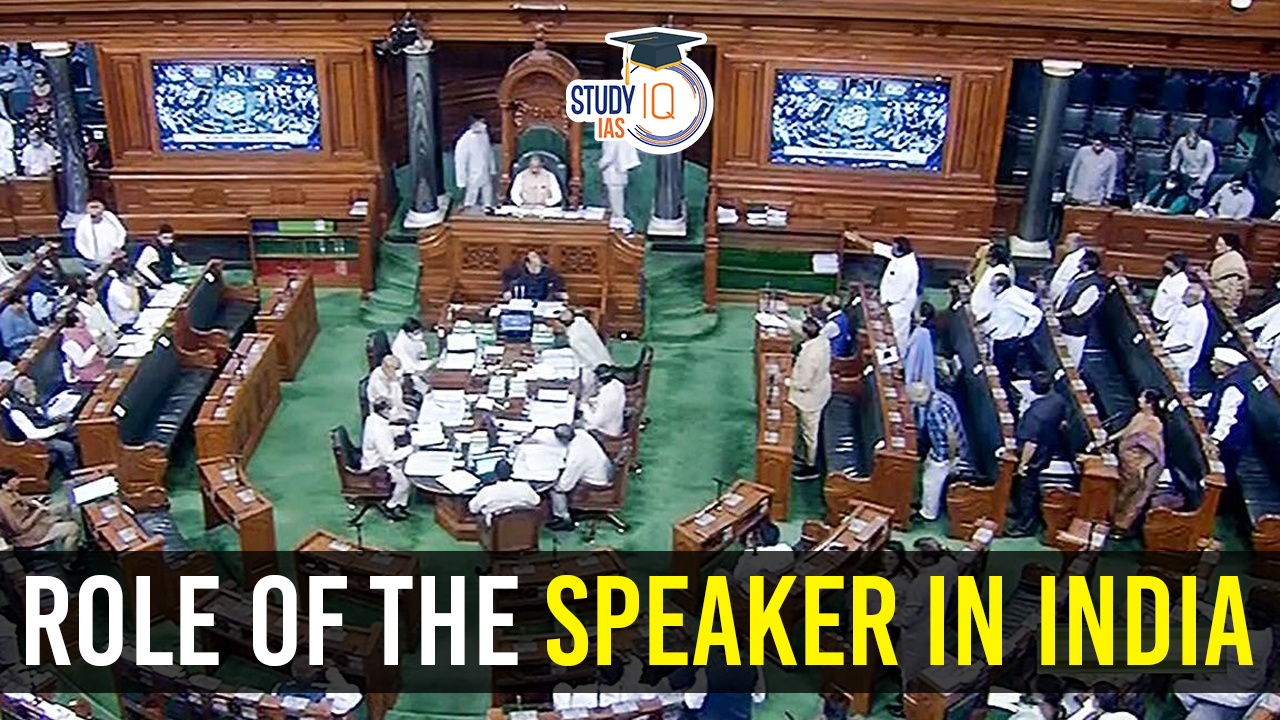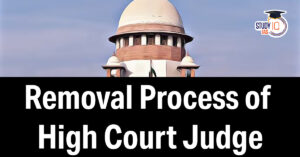Table of Contents
Context: Rahul Narwekar, the Maharashtra Assembly Speaker, ruled on Shiv Sena’s disqualification petitions, highlighting why legislative presiding officers shouldn’t handle anti-defection law adjudications.
What Were the Speaker Rulings?
- Eknath Shinde Group Acknowledged as Shiv Sena: The Speaker decided against disqualifying members from both Eknath Shinde and Uddhav B. Thackeray factions, affirming the Shinde group as the authentic party.
- Legitimacy of Whip: The Speaker established that the UBT faction’s whip was no longer recognized, while the Shinde faction’s appointee was the legitimate whip, indicating no breach of whip by Shinde’s supporters.
We’re now on WhatsApp. Click to Join
About The Role Of The Speaker
Issue of Impartiality and Independence of the Speaker
A vibrant democracy is inconceivable without a representative and efficient legislature. Our constitutional forefathers envisaged the position of the Speaker to be of utmost importance for the functioning of parliamentary democracy. In their view, the members represent individual constituencies, but the Speaker represents the house itself.
The origin of the institution of Speaker in India dates back to 1921, when the Central Legislative Assembly was first constituted under the Montague-Chelmsford Reforms.
Comparison of Office of Speaker
| Parameters | British model | Indian model | American model |
| Nature of office | Neutral in practice. | Neutral in theory. | Openly supports the party. |
|
Resignation |
Formally resigns from the party | Not necessarily resign from the party. | Remains a member of the party he/she belongs to. |
|
Voting Power |
He/she enjoys only tie-breaking votes and has supreme authority over the conduct of business and issues of disqualifications. | His decision is final in matters of disqualifications in case of defection and enjoys only casting vote. | He only presides over the meetings of the house i.e. final decision rests with the house in case of disagreements over disqualification and other issues. |
Importance of Impartiality and Independence of Speaker
- The speaker is referred to as the conscience and guardian of the house and hence he/she should be a person who is impartial and is expected to be above party politics.
- Page Committee of the UK held that – A partisan speaker became the vanguard for the death knell of parliamentary democracy.
- The independence of the speaker means that he/she should not be under any external pressure while performing his/her duties and should consider constitutional morality as a guiding principle while conducting business in the house.
- Therefore, an independent speaker ensures the trust of people in a transparent and democratic law-making process.
- It also facilitates constructive criticism by opposition and healthy debate in the house which is fundamental for the effective functioning of parliamentary democracy.
- Impartiality implies that decisions should be made without regard to bias, prejudice or an unfair favour to one individual or group over another.
- Hence, the impartiality of the Speaker ensures accountability of the executive. He becomes the collective voice of legislators to maintain a system of checks and balances and separation of powers.
- Impartial decisions taken on the part of the Speaker serve as precedence for upcoming officebearers to uphold constitutional values as supreme.
- However, the last few years have witnessed a decline in the functioning of Parliament and a growing trend of the Speaker acting against the Constitutional duty of being neutral.
Controversies Regarding the Role of Speaker
- The present convention of Speaker continuing to be an active member of the ruling party attracts allegations about him/her being partial in taking up matters of urgent public importance for debate eg. Frequent disruptions in the recent winter session-2022 for taking up matters of India-China standoff for debate.
- The decision of the Speaker to certify the Aadhaar bill as a money bill also came under controversy and questioned the powers of the Speaker.
- The discretionary power of the speaker in matters related to the Anti-defection law is often criticised by the experts.
- Only 13% of bills till now have been referred to committees in the 17th Lok Sabha which showcases a trend of decline in debate and scrutiny in parliament.
Independence and Impartial conduct of the Speaker becomes ‘sine qua non’ to ensure accountability of the executive and proper functioning of Parliament.
Constitutional Provisions for Speaker in India
- Security of tenure: A speaker is provided with a security of tenure. He/she can be removed from his office only by a resolution passed by Lok Sabha by an effective majority. Such a motion can be discussed only when it has the support of at least 50 members and a 14-day prior notice is given to the speaker.
- Expenditure charged on the consolidated fund of India: Salaries and allowances of the speaker are fixed by Parliament and are charged on the consolidated fund of India thus not subject to vote in Parliament.
- Casting Vote: He/she can vote only in case of equality of votes which makes his position impartial.
- Conduct cannot be discussed in courts: The Speaker’s power to conduct and regulate procedures of the house cannot be discussed in courts. This is provided to ensure his/her independence.
Way forward
Apart from existing provisions in the constitution and conventions, the following suggestions can be implemented
- Set up an Independent Tribunal: The Supreme Court has recommended that parliament can consider setting up an independent tribunal for dealing with anti-defection cases under the 10th It will be headed by a retired judge and conclude the cases within 3 months. Dinesh Goswami Committee suggested transferring powers of disqualifications on grounds of defection from the Speaker to the President who will act on the advice of the Election Commission.
- Implementing the British Model: In Britain, the Speaker is strictly a non-party person. He/she has to resign from the party and remain politically neutral. This convention can be followed in India too. for eg. former Speaker Neelam Sanjeeva Reddy resigned from his party before he was appointed Speaker.
- Ensuring healthy debate: In the Re Delhi Laws Act case, of 1951 the Supreme Court held that the essential legislative functions must remain the domain of the legislature. Hence the speaker must maintain decorum in the house and ensure a platform for debate on important matters and referring bills to committees.


 Utkal Divas 2025: Odisha Foundation Day ...
Utkal Divas 2025: Odisha Foundation Day ...
 Transfer and Removal Process for High Co...
Transfer and Removal Process for High Co...
 List of Military Exercises of India 2024...
List of Military Exercises of India 2024...





















